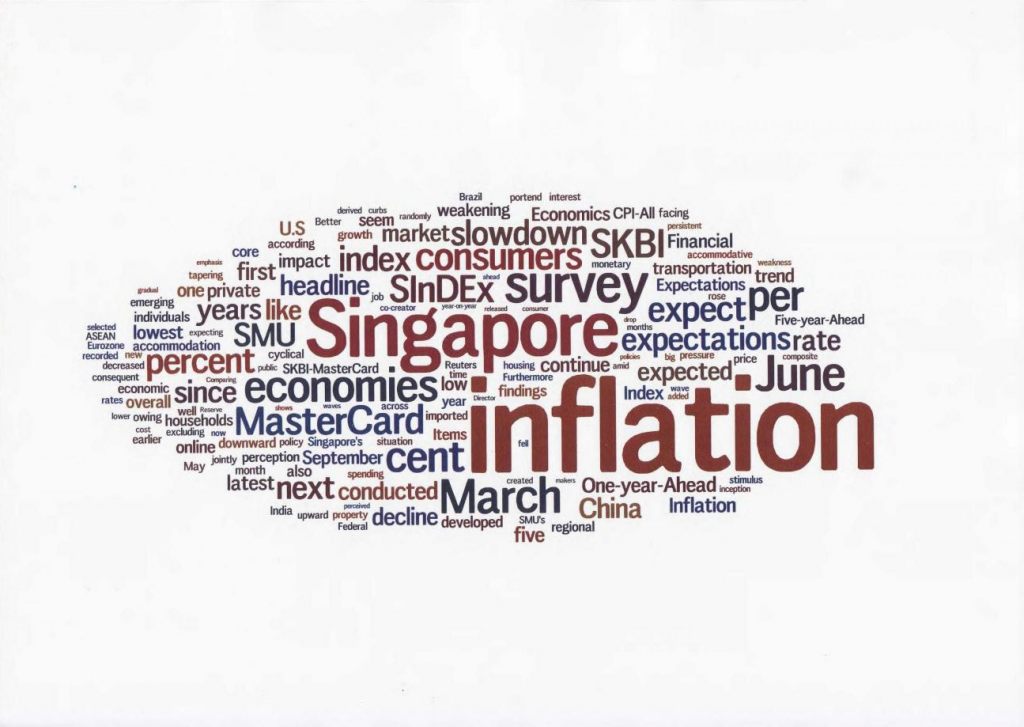Insights from the latest Singapore Index of Inflation Expectations Survey (SinDEx), jointly conducted by DBS and Singapore Management University (SMU), reveal a nuanced outlook on inflation among Singaporeans.
- Home
- DBS-SMU Survey Uncovers Divergent Views on Inflation in Singapore
DBS-SMU Survey Uncovers Divergent Views on Inflation in Singapore
According to the survey, conducted in March 2024, there is a shift in sentiment regarding future inflation trends. While a significant portion of respondents (45.9%) still anticipate a decline in inflation over the next 12 months, this figure marks a slight decrease compared to the findings from December 2023, where 48.6% held similar views.
Conversely, there has been an uptick in the proportion of Singaporeans expecting inflation to rise within the same timeframe. In March 2024, 45.9% of respondents anticipate an increase in inflation, compared to 42.2% recorded in December 2023.

The survey delves into the factors influencing these contrasting perceptions. Among those who foresee a decrease in inflation, the majority attribute this expectation to the slowdown in global economic growth (36%). Additionally, factors such as anticipated interest rate hikes by major central banks (28%) and the resolution of supply chain disruptions (22.8%) are cited as potential contributors to easing price pressures.
On the other hand, respondents anticipating an inflationary uptick point to various geopolitical and economic factors. These include geopolitical tensions such as the conflicts between Ukraine and Russia and Hamas and Israel, along with expectations of central banks maintaining or raising interest rates (both 24.1%). Fiscal measures, including the recent hike in the Goods and Services Tax (GST), are also cited as potential drivers of increased price levels (16.8%).
Overall, the survey findings indicate a marginal decline in Singaporeans’ inflation expectations for the coming year, with expectations dropping from 4.2% in December 2023 to 4.0% in March 2024. This nuanced perspective underscores the complex interplay of global economic dynamics and local factors shaping inflation sentiment among Singaporeans.
The divergent views on inflation revealed by the DBS-SMU survey can have significant implications for Singapore’s economy and society.
- Consumer Behavior: Mixed perceptions of future inflation may impact consumer behavior. Those anticipating a decrease in inflation may be inclined to postpone purchases in anticipation of lower prices, which could dampen consumer spending. Conversely, individuals expecting inflation to rise may accelerate their spending to hedge against potential price increases, leading to short-term demand spikes in certain sectors.
- Investment and Savings: Uncertainty about future inflation rates can influence investment decisions and savings behavior. Investors may adjust their portfolios to hedge against inflationary pressures by favoring assets such as real estate, commodities, or inflation-protected securities. Similarly, individuals may seek higher-yielding savings instruments to preserve the value of their savings in the face of expected price increases.
- Business Planning: For businesses, understanding consumer sentiment regarding inflation is crucial for strategic planning. Companies may need to adjust pricing strategies and inventory management practices in response to changing consumer expectations. Additionally, uncertainty surrounding inflation could impact investment decisions, with firms potentially delaying or accelerating capital expenditure projects depending on their outlook for future costs and revenues.
- Government Policy: The Singaporean government closely monitors inflation expectations as part of its economic policymaking. Divergent views on inflation may influence monetary policy decisions by the Monetary Authority of Singapore (MAS), which could adjust interest rates or implement other measures to manage inflation expectations and stabilize the economy. Moreover, policymakers may need to consider the potential implications of inflation on social welfare programs and fiscal policies.
- Overall Economic Stability: Inflation expectations play a crucial role in maintaining economic stability. Excessive inflation can erode purchasing power, reduce consumer confidence, and disrupt economic activity. Conversely, persistently low inflation or deflation can lead to economic stagnation and hinder growth. Managing inflation expectations effectively is essential for promoting sustainable economic development and maintaining price stability.
In summary, the mixed views on inflation highlighted by the DBS-SMU survey underscore the importance of monitoring and managing inflation expectations for Singapore’s overall economic well-being. Policymakers, businesses, and individuals alike must remain vigilant and adaptable in navigating the complex dynamics of inflation in order to foster a resilient and prosperous economy.
Consultation
Contact us or find nearest office

